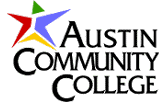 CMM-1723: AUDIO PRODUCTION II
CMM-1723: AUDIO PRODUCTION II CMM-1723: AUDIO PRODUCTION II
CMM-1723: AUDIO PRODUCTION II
|
Instructor |
Fletcher Clark |
|
Length of Course |
3 Hours per Week (Tuesday, 6:00-9:20pm, office hours ½ hour before and after class by appointment only) |
|
Amount of Credit |
3 College Hours |
|
Required Text |
Modern Recording Techniques (4th Edition) Runstein |
|
Suggested Reading |
The Acoustical Foundations of Music; Sound Engineering Handbook: The New Audio Cyclopedia (in library reference stacks); MIX Magazine; EQ Magazine; Electronic Musician; Home and Studio Recording. |
For students to build on the foundations of sound, acoustics and electronics learned in Audio Production I combined with substantial hands-on experience to further develop the basic knowledge and skills sets needed to produce professional grade audio recordings.
|
|
content |
|
|
Course introduction and overview; review of key Knowledge and Skill Sets from Audio I |
|
|
Console architecture; Mackie 8-buss console; patch bay and other routing issues; sessions procedures |
|
|
Recording session: blues trio – drums, electric bass, electric guitar and vocal |
|
|
Review of generic recorder operation; review of Alesis ADAT & BRC operation (24 tracks) |
|
|
Recording session: acoustic ensemble |
|
|
Microphone review and clinic; preamplifiers; Neumann U-87 & TLM-170, AKG 414s & D112, Beyer M88s & M160s, Sennheiser MD421s & MD441s, Crown SASS, Shure SM57s & SM58s; Drawmer 1960 tube preamp (2), Studio Tech MicPreEminences solid state preamp(4) |
|
|
Frequency domain processing: the role of EQ’s in the mix; Aphex 109 Parametric EQ, ART 341 Graphic Equalizer, BBE 422A Sonic Maximizer, DOD SR-RTA |
|
|
Amplitude domain processing: theory and use of compressors/limiters and expanders/gates; dbx 160XTs, Drawmer 1960, Drawmer 201s, RNCs |
|
|
Time domain processing: ambience, tape slap, reverb, DDL, DSP, doubling, chorusing, flanging, etc. Yamaha SPX 1000, Lexicon LXP-1, LXP-5, & LXP-15, Makamichi Cassette |
|
|
Recording Session: miking and recording the piano |
|
|
Audio measurements; issues of acoustics and recording styles |
|
|
Recording Session: ensemble |
|
|
Overdubs on session; rough mixes |
|
|
Final mixing, mastering and dubbing |
|
|
Recording Session: ACC vocal students (multiple microphones) and piano |
|
|
Final Exam: look-back/look-forward |
